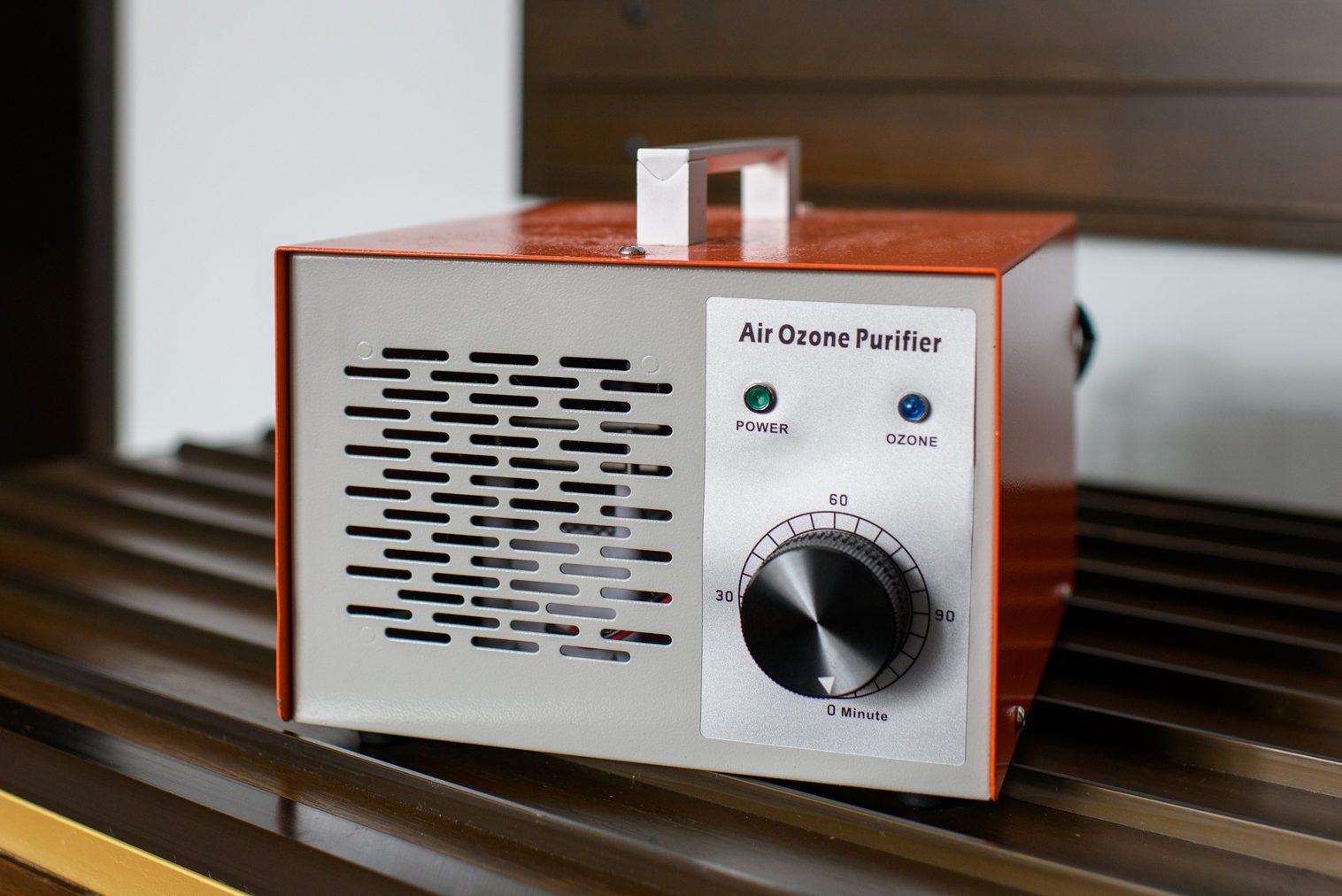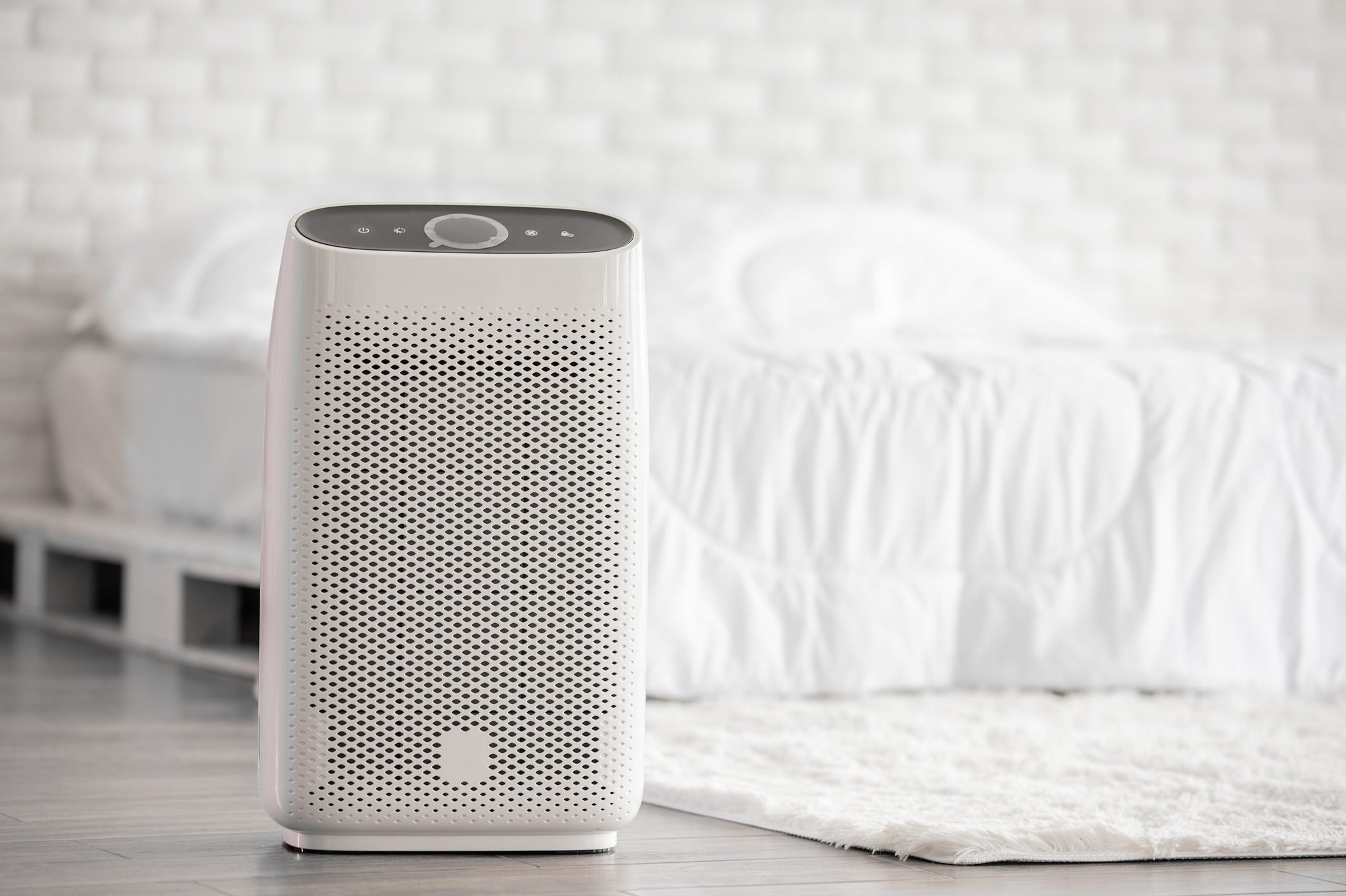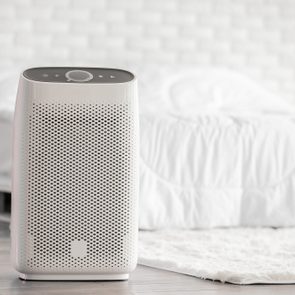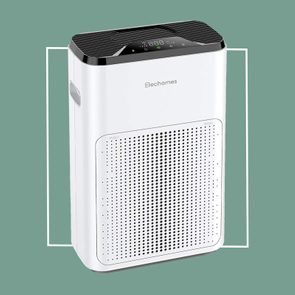What You Need to Know About Ozone Air Purifiers
Updated: Jun. 10, 2021
An ozone air purifier, or ozone generator, can only remove certain pollutants in the air, not including dust or dander. Worse: They can actually damage your airways.
The rise of portable air purifiers
We often worry about air pollution in the outdoor environment, but the air inside your home can be problematic for your health as well. For people with allergies or asthma, things like dust, dander, and pollen can cause allergic reactions or asthma attacks, says Emily Jones, a researcher in the Healthy Buildings program in the Harvard T.H. Chan School of Public Health. Everyday activities like cooking or burning candles can emit particles into the room and even viruses can travel through the air, something we’ve all become acutely aware of with Covid-19.
One way of dealing with contaminants in the air is by using an air purifier, or an air cleaner. “We’re seeing an uptick in interest in portable air cleaners and that’s because portable air cleaners can help address airborne transmission of the SARS-CoV-2 virus,” says Jones. There are many types of purifiers on the market, but they are not all helpful—in fact, some, like an ozone air purifier (also called an ozone generator) could be harmful to your health.
Here’s everything you need to know about ozone air purifiers.
What is ozone?
Ozone is a gas made up of three oxygen atoms and it can be found in various places. We’re all familiar with the ozone layer—that’s an accumulation of ozone high up in the atmosphere. That layer of ozone is helpful for us down on earth, as it blocks harmful (ultraviolet) UV radiation.
Closer to the earth’s surface, though, ozone is a result of a chemical reaction between pollutants that can come from things like cars and manufacturing plants. This ozone is harmful to our health. That’s because that third atom of oxygen (the oxygen that we breathe has two atoms) is unstable. It can detach from the ozone molecule and attach to molecules of other substances.
“Ozone is a strong oxidant, it can damage your lungs,” says Patrician Fabian, an associate professor of environmental health at the Boston University School of Public Health. Ozone has been well-documented to be harmful to your health and has the potential to cause chest pain, coughing, shortness of breath, and throat irritation. According to the Environmental Protection Agency (EPA), people with upper respiratory conditions, children, older adults, and people who are active outdoors are at the highest risk of becoming sick from ozone.

What is an ozone air purifier?
You might think an ozone air purifier reduces the amount of ozone in the air, but that’s not the case. “Ozone generators are a type of air cleaner that is supposed to remove certain types of pollutants,” explains Jones. “Basically, the ozone reacts with the pollutants and breaks them down.”
So, just like that third atom of oxygen can cause damage to your respiratory tract if it’s inhaled, it can also attach to substances in the air, changing the molecular structure and essentially killing it.
Do ozone air purifiers work?
The theory behind an ozone generator is sound. “Ozone is a disinfectant. If you just take it at face value, if you put it in the air and if it comes in contact with a virus or bacteria, it will oxidize the outside cell wall or membrane,” explains Fabian. In practice though, there are many problems with ozone generators.
For one, they don’t act on all the types of particles in the air. For example, they can’t remove dust and dander that could be a problem for an asthmatic person. “The other thing is, depending on what gases they’re reacting within your air, those reactions could produce harmful or irritating byproducts,” says Jones. Fabian adds that the ozone emitted would harm everything in the room—any other living things like pets or plants and also the materials in the building.
The California Air Resources Board notes ozone can damage rubber, electrical wire coatings, and fabrics.
Are ozone air purifiers dangerous?
Although there are ozone generators on the market that promise to be safe and effective, experts strongly advise against them. “You don’t want to be breathing in high concentrations of ozone,” says Jones. The EPA notes that multiple studies have shown ozone generators are not effective at killing the substances they claim to eliminate, especially not by emitting levels of ozone that would be within public health standards.
It adds that having an “EPA establishment number” on the product does not mean the EPA has approved the product—rather, that’s a way for the EPA to identify which facility made the product. While it’s possible that ozone could be used more safely in an unoccupied space (and has been used, for example, for fire restoration) it is not recommended for the average person to use it in their home. “It’s not the best solution,” says Fabian.

What to use instead of an ozone air purifier
If you’re looking for an air cleaner that will rid your home of viruses, pollution, or allergy triggers like dust or pollen, Jones recommends a portable air cleaner with a high-efficiency particulate air (HEPA) filter. “It’s a tried and true, plug and play solution,” she says. “They really remove virtually all of the particles that are in the air.”
(These are the best allergist-approved air purifiers.)
Other things that improve indoor air quality include running the exhaust fan after cooking and opening your windows, providing the outdoor air in your area is relatively free from pollutants. However, this may not be the case if you live near a highway or if there are wildfires in the area.
A filter on your HVAC system can also be effective at cleaning the air in your home, but you should opt for a high-efficiency filter and change it often, notes Fabian.
The bottom line: Be wary of claims on an ozone air purifier, and stick to a filter air cleaner instead.
















